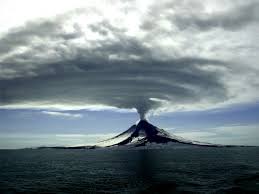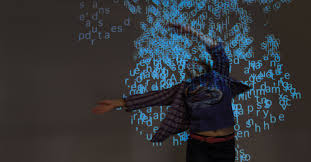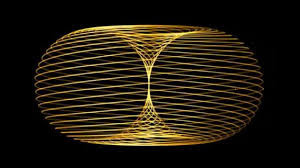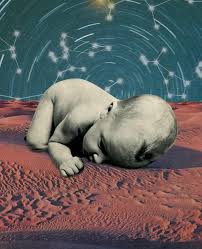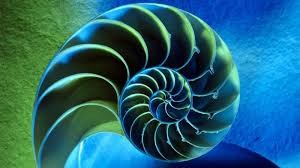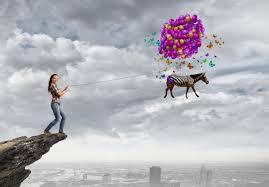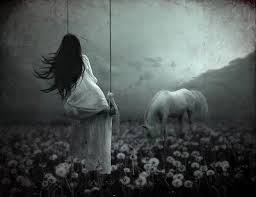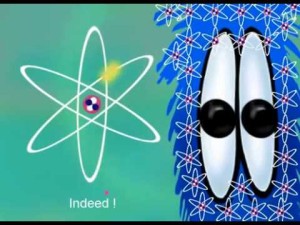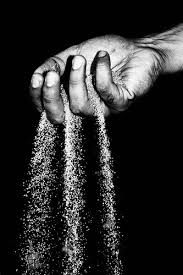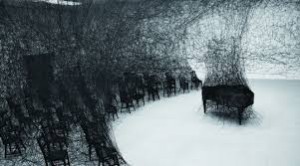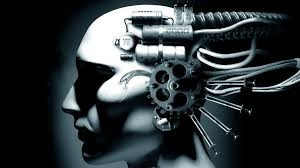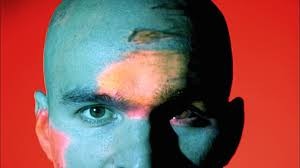In our limited space travel we take for granted the fact that different conditions will be met from those encountered upon our planet.
There are alterations taken into our calculations, so astronauts know ahead of time that they can expect to encounter weightlessness, for example. Our ideas and experience with space and matter, however, are determined by our own sense apparatus. What matters to us might be an “empty space” for being equipped in an entirely different fashion. Our conscious mind as we understand it is the “psychological structure” that deals with conditions on a physical basis. Sense data is served up, so to speak, more or less already packaged. The greater inner reality of the psyche, however, is as extensive as outer space seems to be.
When information “falls” into our conscious mind from those vaster areas, then it also is changed as it travels through various levels of psychological atmosphere, until it finally lands or explodes in a series of images or thoughts.
We are bombarded with such “alien intrusions.” The focus of our consciousness blots these out while we are in a normal waking state. There are falling stars everywhere tumbling through the heavens, for example, though we only see some of these in the night sky. It is important during the day that a screening process be used, so that the precision of our actions can be maintained. Again, however, that fine precision rests upon an endless amount of information that impinges onto other levels of our psychological reality. That data then becomes the raw material, so to speak, from which our physical events are formed.
In the dream state, with our body more or less safe and at rest, and without the necessity for precise action, those psychological intrusions become more apparent. Many of our dreams are like the tail end of a comet: Their real life is over, and we see the flash of their disappearance as they strike our own mental atmosphere and explode in a spark of dream images. They are transformed, therefore, as they travel through our own psychological atmosphere. We cannot perceive them in our own state — nor can they maintain their native state as they plunge through the far reaches of the psyche. They fall into patterns, forming themselves naturally into dream contents that fit the contours of our own minds. The resulting structure of the dream suits our reality and no other: As this intrusive matter falls, plummets, or shifts through the levels of our own psychological atmosphere, it is transformed by the conditions it meets.
Raindrop patterns in a puddle follow certain laws having to do with the contours of the land, the weather, the nature of the rain, of the clouds, the height from which the raindrops fall, and the conditions operating in the nearby and far portions of the world. If we could properly understand all of that, then by looking into a single puddle we could tell the past and present weather conditions for the entire planet, and follow the probabilities in terms of storms, or volcanic eruptions. We cannot do this, of course, yet it is possible.
Dreams patter down into psychological puddles. They follow the contours of our psychological reality. They create ever-moving psychic patterns in our minds, rippling outward. The rain that hits our backyard as warm drops, soft and clear, may be hailing in areas far above our rooftop! But it might also come down to us, harming buildings, cars and humans alike – making us witness the glory of Mother Nature. While we look for hail damage repair for all the materialistic things near us, do we stop to wonder about the how Nature often represents us, in ways that we often tend to overlook? How often do we stop and think about the similarity between these ‘alien intrusions’ and our dreams – very much representing the raindrops – for at other “higher” levels they may have quite a different form indeed. As much as Nature leads us to specialist repair shops (similar to a body shop Lynchburg) to repair our damaged materialistic possessions, it also gives us the beauty of believing and witnessing how broken too, could look just as beautiful.
There are gullies, hills, mountains, valleys, large continents, small islands upon the earth, and the falling rain fits itself to those contours. Our own thoughts, dreams intents, emotions, beliefs– these are the natural features of our mind, so that information, impinging upon our mental world, also follows those contours.
If there is a gully in our backyard, it will always collect the rain that falls. Our beliefs are like receptive areas — open basins — that we use to collect information. Intrusive data will often fall into such basins, taking on the contours, of course. Beliefs are ways of structuring reality. If we over-structure reality, however, then we will end up with a formal mental garden — whose precise display may be so rigidly structured that the natural aspect of the plants and the flowers is completely obscured. Even our dream information, then, will flow into structured patterns.
We know that the natural world changes its form constantly. Objects, however, follow certain laws of a physical nature as we experience them, just as violets on the ground do not suddenly change into rocks.
These conditions, however, only exist at the conscious level of our perception. The larger psyche deals with the greater dimension of events, and the dream state itself is like a laboratory in which our waking reality is constructed. The physical earth is bombarded in the same way by phenomena important to out survival. In the laboratory of dreams this information is processed, collected, and finally formed into the dreams that we may or may not remember; dreams that are already translations of other events, shaped into forms that we recognize.
Each dream we remember is quite legitimate in the form in which we recall it, for the information has broken down, so to speak, fitting the contours of our own intents and purposes. But such a dream is also a symbol for another unrecalled event, a consciously unrecorded “falling star,” and a clue as to how any environment if formed.
